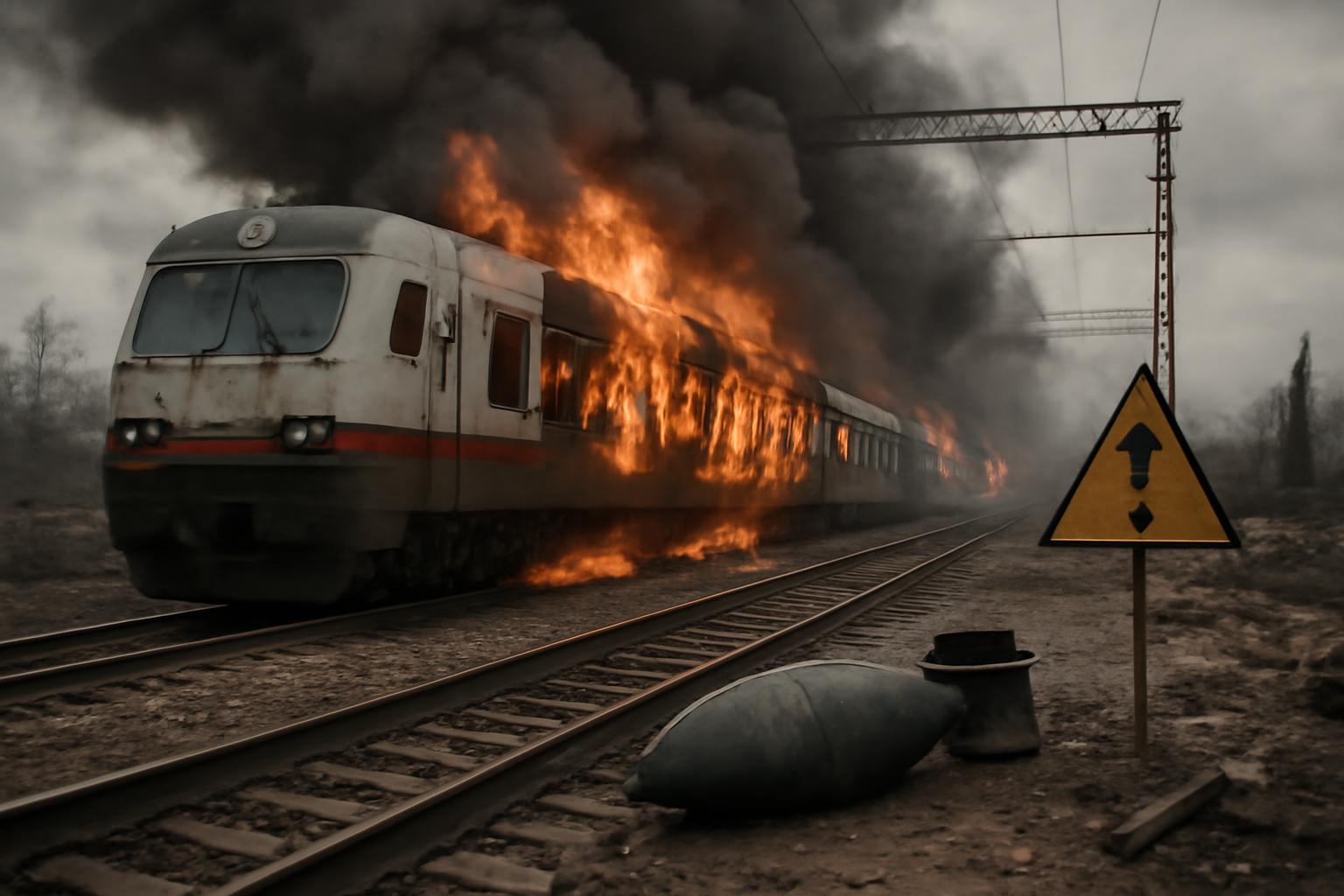The escalation of attacks on railways and logistical infrastructure in this conflict is a vivid illustration of the growing desperation and ruthlessness on both sides. Rail lines, long a symbol of commercial progress and human cooperation, are now mercilessly reduced to strategic targets, their destruction measured by the number of supply wagons halted, not the human cost or the potential for prosperity they once embodied. We must note the tragic irony: the same engines of industry that can bring about freer, more open societies are being targeted in the name of victory, and with each shattered depot and ruined track, the chains binding individuals to the destructive power of the central state are reinforced.
When the machinery of war turns to infrastructure, it reveals yet again the deadly folly of centralized power and the command economy so beloved by autocrats on both sides of such conflicts. These railway networks, in peace time, knit peoples together in voluntary exchange, fostering commerce and understanding across borders. In the hands of the state, however, they become instruments of coercion, commandeered not to serve the individual, but to sustain the war machine, feeding the insatiable appetite of political competition and martial ambition. The worker killed in Losowa, the casualties in Sumy—these are not mere statistics, but real evidence of the tragic human cost when individuals are compelled to serve as cogs in the machinery of collective violence.
It bears repeating, almost ad nauseam, that warfare is itself the ultimate manifestation of what happens when the market order is smashed by collectivist planning and the pursuit of power. Where markets coordinate through free choice and mutual benefit, war and its apparatus—the commandeered trains, the targeted depots, the civilian casualties—are the inevitable endpoint of a system that puts state objectives above individual welfare. Every act of destruction against railway lines, regardless of which flag it serves, further entangles the future of these nations in a web of state domination and economic impoverishment, from which recovery becomes more uncertain with every passing day.
Let us not romanticize the cleverness with which each side seeks to cripple the other’s supply lines. These are not acts of strategic genius, but of institutional pathology—symptoms of a world that has forgotten that the very infrastructure now being destroyed was once built by the energies and aspirations of countless individuals, each pursuing their own betterment. Until peace is restored, and voluntary cooperation is allowed to flourish once more, the tragedy will persist, and with it, the erosion of the hope for a genuine civilization of freedom, decency, and prosperity.
